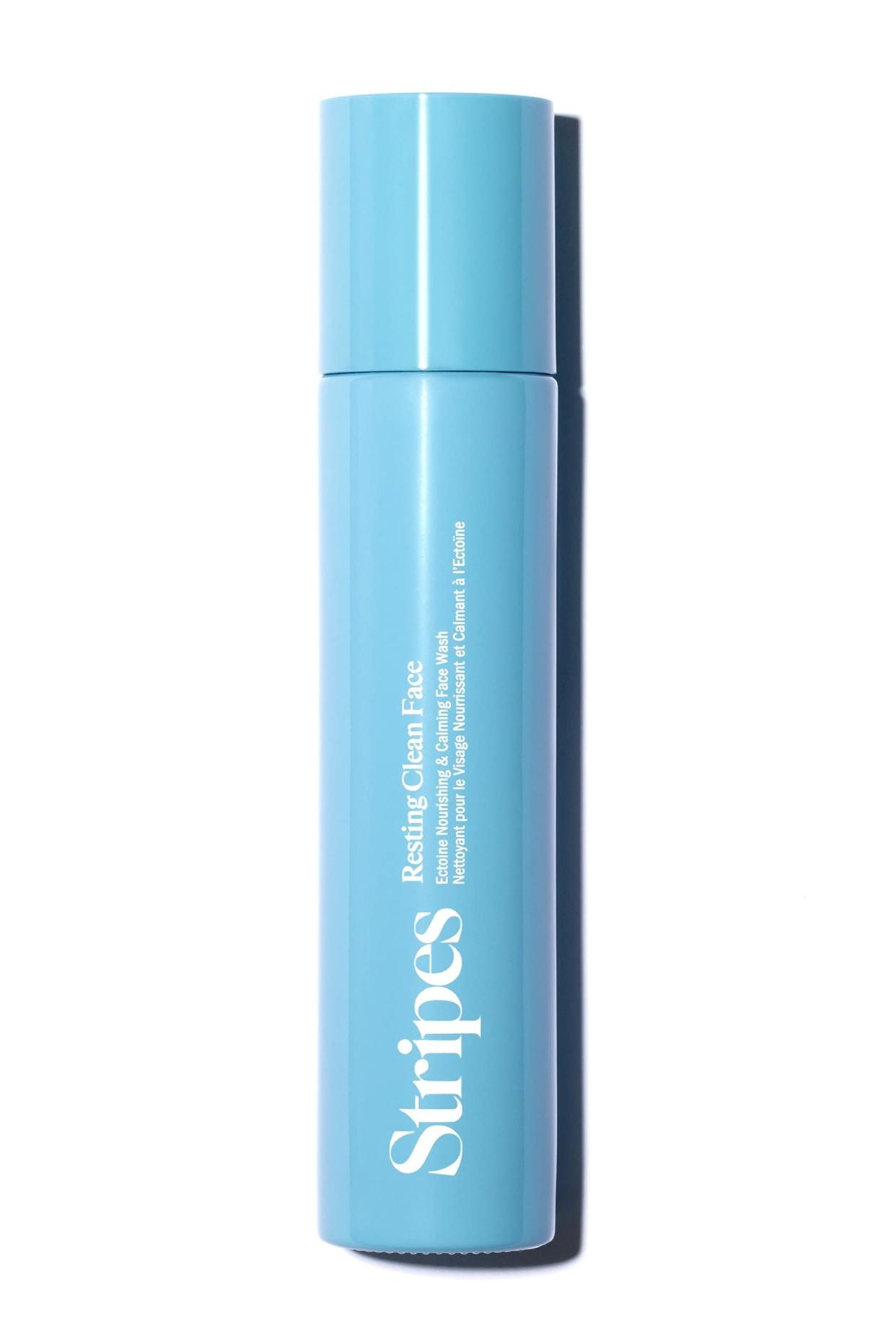Naomi Watts Started Menopause At 36. Here's What She Wants Women To Know About The Change

"Hearst Magazines and Yahoo may earn commission or revenue on some items through these links."
Naomi Watts, 55, wants everyone to talk about menopause.
In fact, she founded her beauty brand, Stripes, in honor of this mission. But she wasn't always this open about her journey. When she was 36 years old, the Feud: Capote vs. The Swans star began experiencing menopause symptoms, causing her loads of "self-loathing and fear."
"When I was trying to make babies, I was told [by a doctor] that I was probably close to menopause," she exclusively tells Women's Health. "It filled me with panic and shame. I just thought, 'Who am I, as a woman, if I can't reproduce?' Absurd thoughts."
The actress, who ultimately welcomed children Sasha and Kai with then-boyfriend Liev Schreiber, had been dealing with night sweats, migraines, and irregular periods for years. Perimenopause typically doesn't begin until age 40, although it can start as early as the 30s, according to Mount Sinai.
But Naomi says she didn't have her "light bulb moment" until her doctor's appointment. It's what inspired her to found Stripes, which features products for menopausal women including a thickening scalp serum, supplements, and an intimate hydrating treatment.
On June 24, the company announced they're being acquired by private-equity firm L Catterton, a private equity firm cofounded by LVMH, the luxury conglomerate that owns Louis Vuitton. Together, Naomi and L Catterton plan to launch Stripes internationally, starting in Canada.
"Why was this community not being served? Why were they being made to feel invisible, that it's the end of the line?" Naomi says. "If anything, it should be a door opening to the next part of your life. This is how to enjoy it."
Here are Naomi's top tips for other women going through early menopausal symptoms, including hydration and hormone replacement therapy (HRT).
Educate yourself.
The most important thing to do when experiencing early menopausal symptoms, Naomi says, is to educate themselves. "This should be the story should be told," she says. "This is the adult version of puberty—this is puberty in reverse. I wish that this would happen in Sex Ed in fifth grade. It's just part of it, and for some reason, that part of the story was just left out."
The Menopause Guidebook by The North American Menopause Society (NAMS) is one of the most frequently-recommended titles by experts. NAMS' website even has a tool where you can find a doctor certified in menopause medicine. (Fewer than one in five U.S. obstetrics and gynecology residents receives formal training in menopause medicine, per a Johns Hopkins survey.)
And if you aren't ready to chat with your medical provider just yet, Naomi says she's learned just as much from "water cooler conversations" with her friends.
"All those other moments where women come together and go, 'How's it going for you?' and share symptoms just instantly makes it easier," she says.
Hydrate, hydrate, hydrate.
One of Naomi's first menopausal symptoms, she says, was "angry, itchy, red skin," which was especially difficult considering how often she was on-camera. "Hiding it with makeup was just making it worse and more irritable," she says. "Any products that were working for me before were no longer working. They were too drying, too harsh, too active."
In her 20s, Naomi says her skincare was "slapdash."
Now, she does three to four steps every night, including using Stripes' Resting Clean Face cleanser. "People think we've got to have that double cleanse and really clean the skin dry. It's the opposite," she says. "You need something that's not too hot, not too stripping."

Resting Clean Face Hydrating Cleanser
amazon.com
$38.00
After moisturizer, she finishes off her routine with Stripes' Cool Factor facial mist to take away any lingering redness. "When you are having a hot moment, you can just spray your face," she says.

The Cool Factor Calming Face Mist
amazon.com
$38.00
Getting eight hours (or more) sleep is 'key.'
While sleep is always important, Naomi says beauty rest became even more important once she started having early menopause symptoms.
"By my age, you've had disrupted sleep at very various different points in your life—not just for the babies, it's the night sweats and the other pressures in your life," she says. "But sleep is absolutely key for me."
So Naomi makes sure to get eight hours or more—sometimes with the help of a sleep supplement like melatonin or Dream Date. "No sleep can lead to all kinds of other symptoms like brain fog, anxiety, loss of confidence," she says. "Nobody wants to exist without sleep."
She's 'grateful' for hormone replacement therapy.
Finally, Naomi does HRT, or hormone replacement therapy, which has helped her with hot flashes and sleep. "It's not a silver bullet," she says. "But it's certainly helped me."
Usually taken as a pill, HRT replaces some of the hormones no longer made by your ovaries with artificial estrogen and progesterone, according to the Office on Women's Health. It reduces menopause symptoms like hot flashes, sleep problems, mood changes, and vaginal dryness, but does comes with an increased risk of stroke and blood clots in the legs and lungs. The FDA advises women who want to try menopausal hormone therapy to use the lowest dose that works for the shortest time needed.
Overall, Naomi just wants women to know there are ways of addressing menopause symptoms, and there's no need to suffer in silence.
"We've identified this community and and it's important to not just leave them hanging again," she says. "They were drying out—literally—for far too long. Some of it is just having the conversation—knowing that you're not alone."
You Might Also Like
